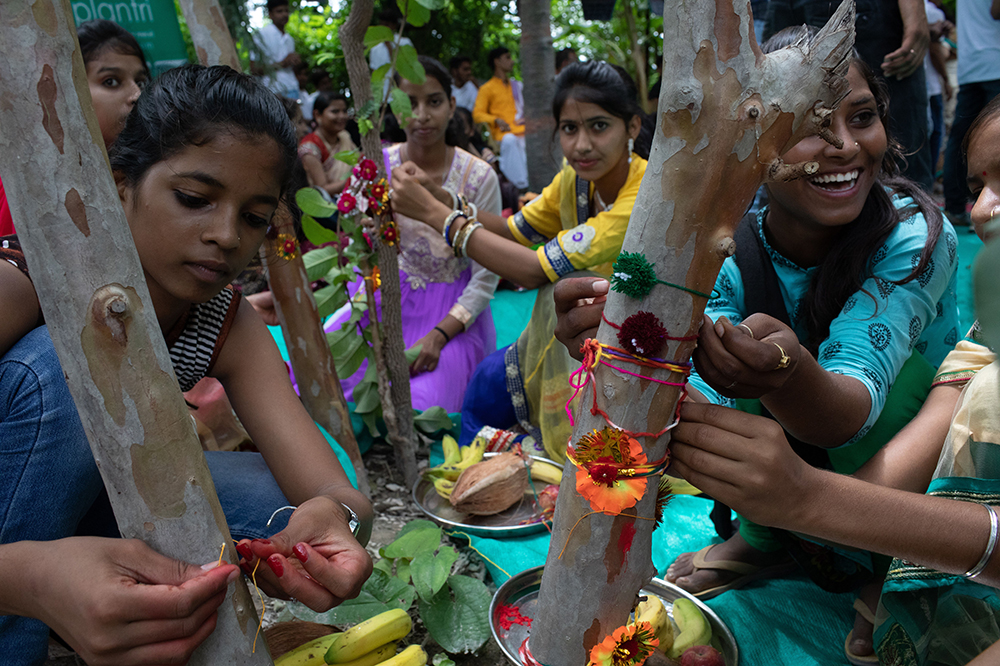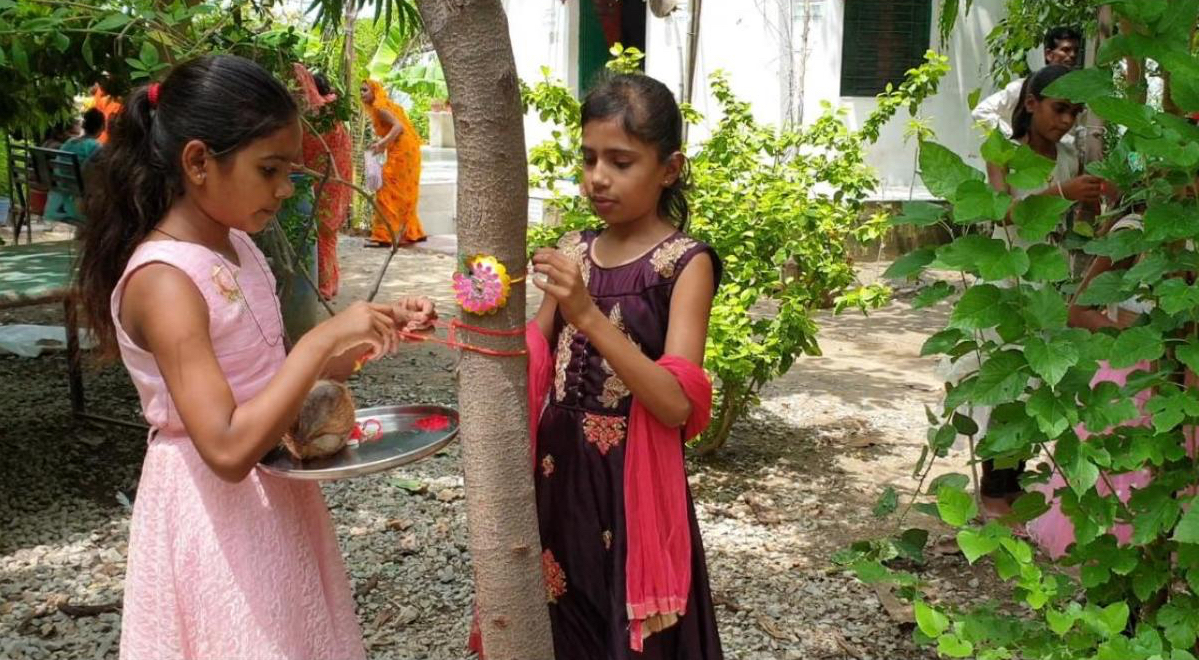
Piplantri, a village in Rajasthan, India, has an incredible tradition that celebrates the birth of girls, ensures their financial security and helps provide a greener and more prosperous future for the next generation. The villagers plant 111 trees each time a girl is born as a show of gratitude. Plus, they band together to raise a trust for her as long as her parents sign a legal affidavit stating she will receive proper education and will not be married before she reaches the legal age.

After losing his young daughter, Kiran, Shyam Sundar Paliwal, the former Piplantri sarpanch (leader) took it upon himself to ensure residents would treasure each girl’s life. In 2006, he started a scheme to plant 111 trees as a way of encouraging families to celebrate the birth of each girl born in the village. The villagers plant the trees on Piplantri’s grazing commons and ensure they survive. The eco-conscious honour has become profitable for the residents, who have planted multiple species of trees, like mango, neem, sheesham and amla, which are bringing in revenue. They have also planted countless aloe vera plants around the trees to make sure they remain naturally termite-free, which has enabled them to benefit financially by making and marketing different aloe vera products.
The amazing initiative that aims to promote gender equality includes much more than the tree-planting programme though. A committee identifies families reluctant to accept baby girls and ensures the newborns have a good life by collecting money from village residents. The parents are also obliged to contribute some money, and the trust is set aside so each girl has financial security until she’s an adult. This kind of trust ensures parents don’t feel girls are financial burdens. In return for the trust, each girl’s parents have to sign a legal affidavit stating their daughter will be educated and will not get married before 18. They also have to promise to take care of the trees planted in her name.

Traditionally, families have had to provide dowries, payments made in cash or kind to the in-laws, when their daughters marry, which is financially draining for them. This has made raising girls more expensive than boys, leading to a preference for boys and many cases of female foeticide. The Indian government has taken steps to prevent these, including making dowries and testing the gender of a foetus illegal. They also introduced the “Beti Bacho, Beti Padho” (Save our daughters, Educate our daughters) programme in 2014 that focused on areas where the gender divide is widespread.
Thanks to Paliwal’s plan, his village has been taking things further by actually rejoicing in a girl’s birth, rather than just going through with it.

















